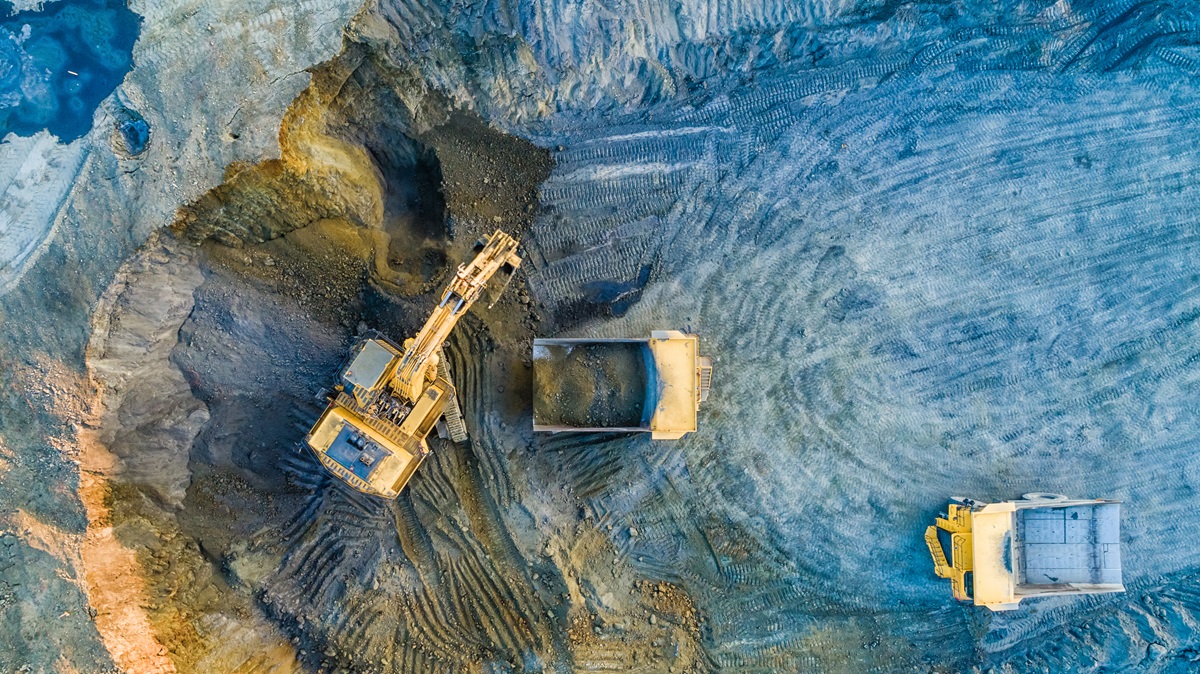By Paul Akiwumi, Director of Africa and Least Developed Countries, UN Trade and Development (UNCTAD)
© Shutterstock/Evgeny_V
Africa's mineral wealth is undeniable. From the cobalt mines of the Democratic Republic of the Congo to the manganese fields of South Africa, the continent boasts a treasure trove of minerals vital for the global transition to low-carbon energy and technological advancement.
The continent is the centre of attraction due to its huge deposits of the world’s reserves of minerals essential for renewable energy technologies like solar panels and electric vehicles: 55% of cobalt, 47.65% of manganese and 5.9% of copper, among others.
As the climate crisis intensifies, the global demand for these critical energy transition minerals could increase almost fourfold by 2030. This accelerating demand presents a unique opportunity for Africa to better harness them to generate more revenues and chart a new course towards prosperity, inclusive growth and sustainable development.
Africa now has a historic opportunity to unleash a wave of structural transformation in some of the countries that need it most. But harnessing this potential requires more than mere geological fortune. Historically, the continent has not fully seized the opportunities presented by its natural resource endowments.
Estimates show that African countries generate only about 40% of the revenue they could potentially collect from these resources, as they’re hindered by limited value addition, governance and infrastructure challenges, among other constraints.
Time to turn the tide
Limited and volatile development finance is holding Africa back, slowing down progress towards achieving development goals. But amid current multiple crises, limited fiscal space, slow growth and high debt, the time is ripe for African countries to turn the tide by seizing the opportunity presented by the critical minerals boom.
To do so, African nations must embrace a holistic approach that entails not only extracting and exporting raw minerals but also adding value domestically through processing and manufacturing to gain a larger share of the global market.
Such processing will also help diversify these countries’ export baskets and make them less vulnerable to commodity price fluctuations.
African countries also need to fully integrate their mining sector into national economic activities by promoting linkages with other sectors of their economies.
This must be accompanied by the implementation of the Africa Mining Vision that includes stronger regional integration and more investment in infrastructure and human capital.
The African Continental Free Trade Area provides a platform for deeper economic integration, creating a conducive environment for countries to pool resources and expertise, overcome infrastructure challenges, enhance market access and promote technology transfer.
African countries must also avoid the previous pitfalls of commodity dependence and prioritize sustainable resource management practices that minimize environmental degradation and respect the rights of local communities.
It’s also critical for countries to enhance their productive capacities, as without shifting to higher productivity sectors, they will not be able to achieve their development goals.
Governance reforms critical
Reforms for better fiscal administration and good governance of extractive sectors and responsible mining practices should be key priorities to ensure that mineral extraction contributes to, rather than detracts from, long-term sustainable development objectives.
Promoting transparency and accountability in the management of mineral resources, rooting out corruption and combating illicit financial flows are also essential steps towards ensuring that the benefits of mineral extraction are equitably shared among all citizens.
The continent should also use its vast endowments of critical minerals to chart its own green energy transition trajectory, grounded in its industrialization objectives, while asserting itself as a pivotal player in global climate action.
A transition towards green energy is imperative for Africa, a region accounting for 80% of the 733 million people globally without access to electricity and 39% of the 2.4 billion people without access to clean cooking.
Strategic focus
One of our strategic focus areas at UN Trade and Development is supporting African countries to optimize the developmental potential of their minerals to transform their economies and create a brighter future for their citizens.
This year we celebrate our 60th anniversary by reflecting on the lessons learned over the years and forging a new path forward that amplifies our support to countries to build a future that is resilient, equitable and sustainable.
To mark this milestone, we’ll bring together leaders, diplomats, experts and key stakeholders on 4 June in Addis Ababa and online to explore ways to harness Africa's mineral wealth to drive inclusive economic growth and sustainable development on the continent.
The event will explore the untapped opportunities in the “green” minerals sector and chart a course towards enhanced value addition and revenue optimization to usher in a new era of development across the continent.
The journey ahead may be fraught with obstacles, but with determination and foresight, Africa can emerge stronger, more resilient, and better equipped to navigate the complexities of the global economy.
The article was first published on 25 May 2024 in The EastAfrican.

